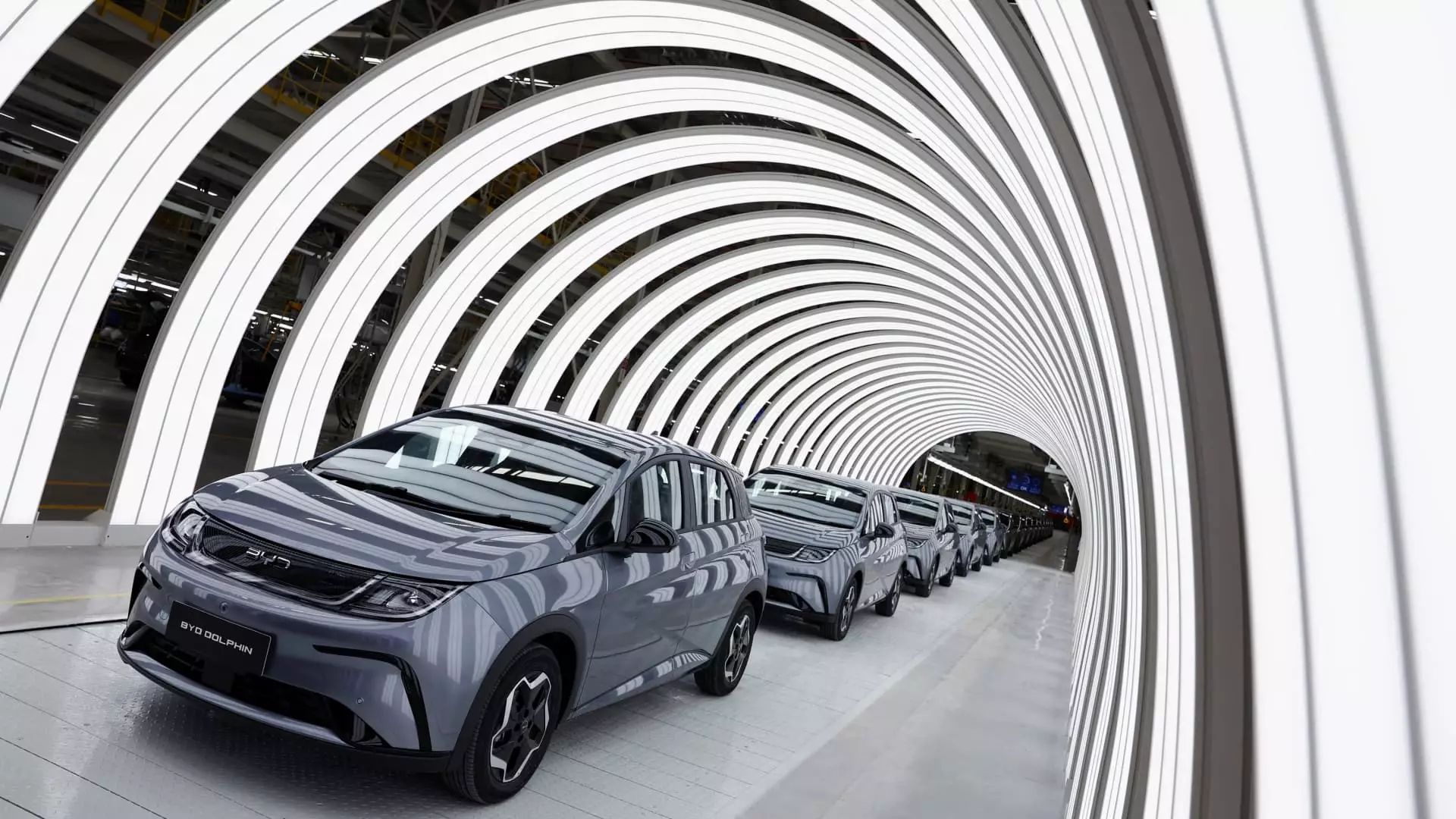The electric vehicle (EV) industry is undergoing remarkable transformations, particularly with advancements in driver-assistance systems. BYD, a prominent player in the field, has recently made headlines by launching an innovative driver-assistance system for a diverse lineup of cars, inclusive of budget-friendly models designed for mass market consumption. This article delves deeper into the implications of BYD’s latest moves for its suppliers and the broader automotive market, highlighting the intertwined future of technology and the automotive landscape.
BYD’s strategic innovations have earned the company unprecedented attention, propelling its stock to record highs in recent weeks. The introduction of a driver-assistance system across various models, particularly for those priced under 70,000 yuan (approximately $9,600), marks a significant milestone. With this endeavor, the company aims to enhance user experience, tapping into an escalating demand for smart driving capabilities in China—one of the world’s most competitive automotive markets.
This progressive leap is not only advantageous for BYD in terms of market positioning but also for the suppliers who provide essential components for these advanced systems. Industry analysts have projected strong growth prospects for these suppliers, anticipating increased demand for smart driving-related technologies as BYD leads the charge in enhancing its offerings. Such innovations signal a shift where automakers are recognizing the significance of integrating advanced driver-assistance technologies into their vehicles to stay competitive.
The ripple effects of BYD’s advancements resonate throughout its supply chain. Analysts at Nomura have expressed optimism regarding suppliers specializing in driver-assistance technologies, emphasizing that companies involved in producing components for these advanced systems are likely to experience substantial growth. This is particularly relevant with the impending pressure on competing manufacturers, who will be compelled to expedite their own upgrades in smart driving features. As the technology sector within the automotive industry expands, the demand for components such as sensors, chips, and other advanced machinery is expected to surge.
Focusing on specific suppliers, efforts by BYD to enhance its driving capabilities include collaborations with firms like BYD Electronics, Horizon Robotics, and Hesai Tech. These partnerships underscore BYD’s commitment to integrating cutting-edge technologies, such as lidar systems that create intricate 3D maps of vehicle surroundings. Given that these systems are becoming pivotal selling points in the EV market, the competition is intensifying significantly, with rivals leaving no stone unturned to match BYD’s proficiency in smart driving innovations.
One of the most noteworthy aspects of BYD’s progress is its partnership with Horizon Robotics, a key player in chip manufacturing for autonomous driving. With chips being the backbone of these technologies, the future of electric vehicle development hinges on the continuous innovation in semiconductor technology. The importance of this relationship is underscored by remarks from Yang Chuanfu, BYD’s founder, who has reiterated the critical role of semiconductors in accelerating the growth of electric vehicles.
Goldman Sachs’ recent analyses have spotlighted the positive projections for Horizon Robotics due to the company’s new Journey 6 chipset series, which analysts predict will account for a significant portion of revenue in the coming years. As more manufacturers opt for integrating smart technology into affordable vehicles, the demand for innovative chip solutions is bound to rise. This reflects a broader trend aimed at democratizing advanced technologies, making them accessible to a wider audience.
The unveiling of BYD’s driver-assistance system also casts a significant shadow over competitors such as Tesla, particularly regarding its Full Self-Driving capabilities. Recent reports indicated a market reaction that saw Tesla’s shares decrease following BYD’s announcement, highlighting the fierce competition in the EV space. As more players enter the market with robust technological backing, companies like Tesla will need to refine their strategies to maintain their competitive edge.
China’s increasing drive for technological self-reliance, coupled with U.S. restrictions on certain imports, has accelerated the growth of domestic suppliers, further enhancing the competitive atmosphere. The implication is clear: to survive in this rapidly evolving market, car manufacturers must invest in smart technologies and adapt quickly to changing consumer preferences.
As BYD powers forward with its driver-assistance system, the coming years promise great opportunities not only for the company itself but also for its suppliers and the automotive industry at large. Analysts predict that advanced driver-assist systems will become standard in millions of vehicles, a trend that could significantly enhance profit margins for stakeholders involved in this space.
BYD’s ambitious plans to incorporate next-gen driver-assistance technologies signal a substantial turning point for the EV industry in China and beyond. By leveraging technological partnerships and focusing on consumer demands, BYD is set to play a defining role in shaping the future of electric mobility, pushing both itself and its competitors to innovate continuously to meet market expectations.

